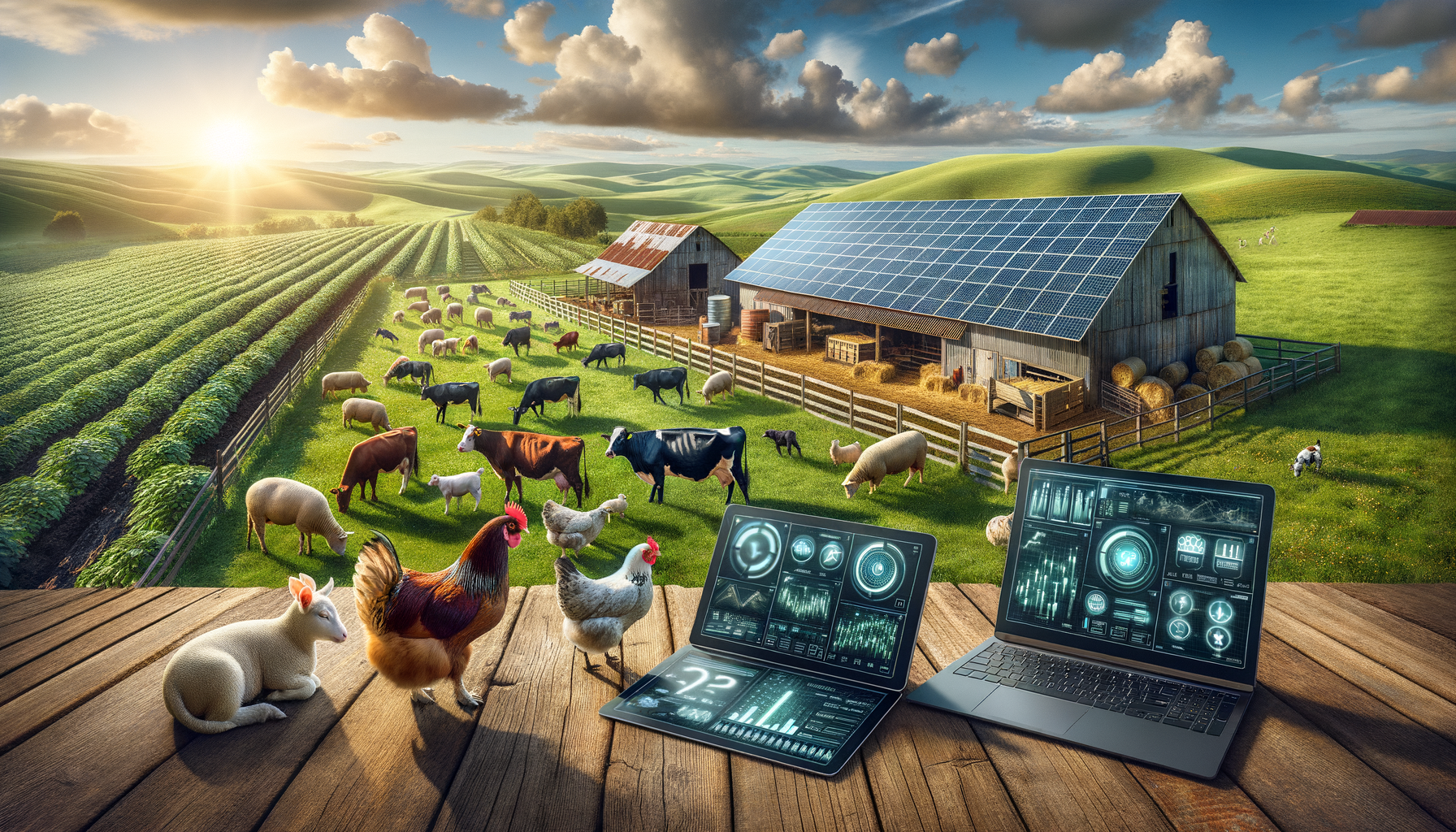Livestock Management Software: Smarter Farming with Digital Tools
Digital livestock software helps farmers manage herd health, feeding, and productivity using data-driven insights for better outcomes.

Introduction to Livestock Management Software
In the dynamic world of agriculture, technology is becoming an indispensable ally. Livestock management software is revolutionizing the way farmers handle their herds, offering data-driven insights to enhance productivity and efficiency. This digital approach not only aids in managing herd health and feeding schedules but also provides a comprehensive overview of farm operations. By integrating these tools, farmers can make informed decisions that lead to better outcomes, ensuring sustainable farming practices.
Enhancing Herd Health with Data
One of the primary benefits of livestock management software is its ability to monitor and improve herd health. By collecting data on individual animals, farmers can track vital signs, vaccination schedules, and medical histories. This information is crucial for early detection of illnesses, which can prevent outbreaks and reduce veterinary costs. Moreover, software solutions often come with alerts and reminders, ensuring that no health check or treatment is missed. The ability to analyze trends over time helps in understanding the overall health dynamics of the herd, leading to proactive health management.
Optimizing Feeding and Nutrition
Feeding and nutrition are critical components of livestock management. With software, farmers can devise and manage feeding plans tailored to the specific needs of their animals. These tools allow for precise calculation of feed requirements based on factors such as age, weight, and production goals. By optimizing nutrition, farmers can enhance growth rates and milk production, ultimately improving profitability. Additionally, software can track feed inventory and costs, helping farmers to manage resources efficiently and reduce wastage.
Boosting Productivity through Automation
Automation is a game-changer in livestock management. Software solutions offer automation features that simplify routine tasks, such as record-keeping and reporting. By automating these processes, farmers can save time and reduce human error, leading to more accurate data collection. This efficiency extends to financial management, where software can track expenses, revenues, and generate financial reports. The ability to access real-time data remotely also means that farmers can make quick, informed decisions, even when they are not on the farm.
Future Trends in Livestock Management Technology
The future of livestock management is set to be shaped by advancements in technology. Emerging trends include the use of artificial intelligence and machine learning to predict health issues and optimize breeding strategies. Additionally, the integration of Internet of Things (IoT) devices is enhancing data collection, providing farmers with a more detailed understanding of animal behavior and environmental conditions. As these technologies evolve, they promise to bring even greater efficiencies and innovations to livestock farming, making it more sustainable and profitable.
Conclusion: Embracing Technology for Sustainable Farming
In conclusion, livestock management software is a vital tool for modern farmers seeking to enhance productivity and sustainability. By leveraging data-driven insights, farmers can ensure the health and well-being of their herds while optimizing resources and reducing costs. As technology continues to advance, those who embrace these digital tools will be well-positioned to meet the challenges of the agricultural industry and contribute to a sustainable future.